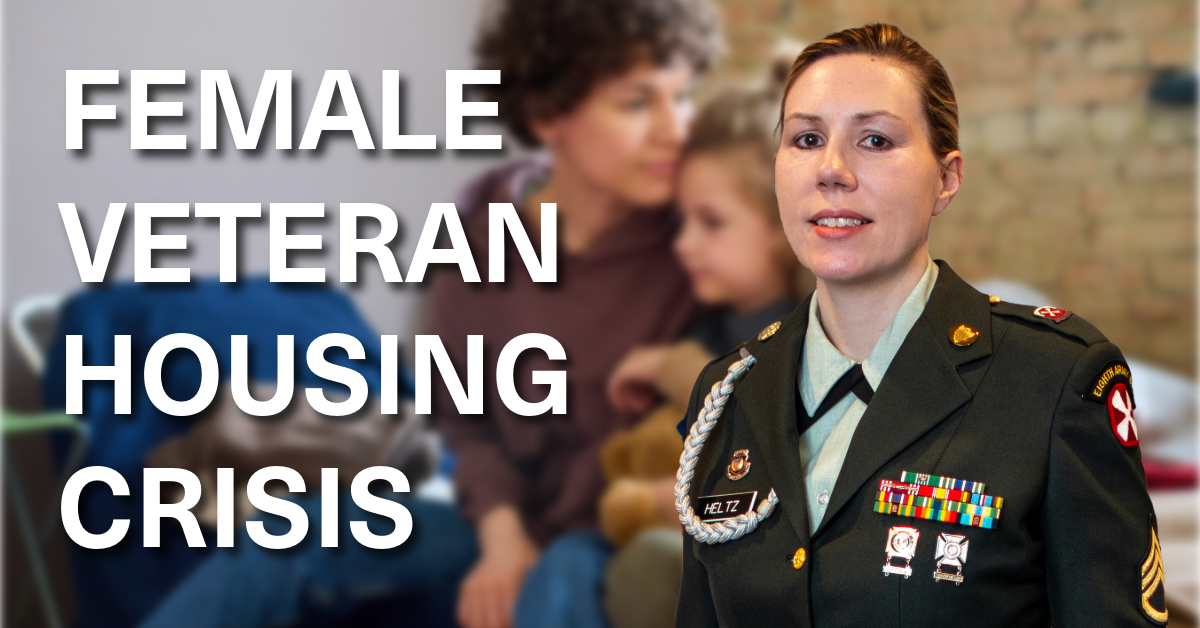Veterans Outreach Center
 This Women’s History Month, Veterans Outreach Center celebrates Marlene Roll, a woman whose life is a powerful testament to the impact of dedicated service. From her time as an Army Operating Room Technician to her groundbreaking leadership within the Veterans of Foreign Wars (VFW) and beyond, Marlene has consistently broken barriers and championed the cause of her fellow veterans. Her story is one of resilience, leadership, and a deep-seated passion for advocacy.
This Women’s History Month, Veterans Outreach Center celebrates Marlene Roll, a woman whose life is a powerful testament to the impact of dedicated service. From her time as an Army Operating Room Technician to her groundbreaking leadership within the Veterans of Foreign Wars (VFW) and beyond, Marlene has consistently broken barriers and championed the cause of her fellow veterans. Her story is one of resilience, leadership, and a deep-seated passion for advocacy.
Marlene’s journey began in 1986 when she enlisted in the US Army Reserve. Her eight years of service, including deployment during Operation Desert Shield/Desert Storm, saw her excel as an Operating Room Technician, earning commendations for her resourcefulness and initiative and achieving the rank of Sergeant. This demanding experience laid the foundation for a lifetime of service.
Upon returning home, Marlene immersed herself in the veteran community, joining the VFW in 1991. Often the first woman to hold many positions she filled, she served three terms as Post Commander, rose to Erie County Commander, and, in 2015-16, became the Department Commander for New York State. Throughout her VFW career, she held crucial roles, including Special Recruiter, Membership Chairman, Patriotic Instructor, Chief of Staff (for two terms), State Inspector, and Women Veteran Chairperson (for three terms). She even formed a new, ‘Female Focused’ VFW post – the first of its kind in the nation, Kubik/Galloway Post #12097, in 2010.
Her influence and advocacy extended to the national level, where she served as a Certified National Recruiter for 13 years, a VA Accredited Veterans Service Officer, a member of the National Legislative Committee for many years, and a key National Women’s Committee member. Marlene testified before Congress on the critical issue of sexual assault in VA Hospitals, demonstrating her fearless commitment to addressing complex challenges facing veterans. She held dual accreditation with the American Legion and the VFW.
As Director of Erie County Veterans Services, she spearheaded initiatives to connect with the veteran community, including partnering with local organizations to conduct Town Hall Outreaches, creating a database of unemployed veterans to circulate job opportunities, and organizing job fairs. She established a weekly presence in the Buffalo Veterans’ Treatment Court, assisting veterans with claims and services. As Interim Director of Monroe County Veterans Service Agency, she helped modernize the agency. She later continued this crucial work as an Assistant Department Service Officer for the Department of New York VFW.
However, Marlene’s commitment extends far beyond the VFW and government agencies. Her extensive involvement in organizations like the Military Order of the Cooties, American Legion, 40 & 8, DAV, and Am Vets, as well as her service on numerous boards (Higher Ground NY, WNY National VA Cemetery, Buffalo Naval & Military Park, and the VA Batavia Veteran’s Home), showcases her holistic approach to veteran support. As of 2023, she is President of the New York State Council of Veteran Organizations.
Beyond her advocacy, Marlene is a successful entrepreneur. For 17 years, she used her business acumen and dedication to providing quality care to design, build, and operate Tri-County Kennel, Inc.
Marlene’s passion is also evident in her role as a mentor. She serves as a Veteran Mentor in Judge Russell’s Veterans Treatment Court and a Veteran Advisor to PACT, now the Veterans Experience Committee, at the Buffalo VA, guiding veterans through complex systems and providing invaluable support. Her tireless work has directly improved the lives of many veterans, and her impact is recognized with the Susan B. Anthony Award and induction into the NYS Veterans Hall of Fame.
“While I may have been naïve going into the military, it has given me many life lessons and opportunities and has made me who I am today,” Marlene said. “I choose to continue to serve my veteran community out of passion for those who have also served our great country and the families they left behind while volunteering or drafted.”
Marlene Roll, supported by her husband, Jim, for 38 years, is a true trailblazer. She embodies the spirit of selfless service, breaking down barriers and paving the way for future generations of women veterans. This Women’s History Month, we salute Marlene – a dedicated advocate, a proven leader, and an inspiration.




